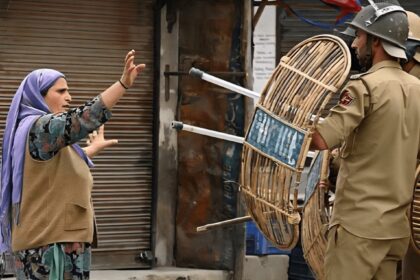Since my holidays started after two-month-long, amazingly tiring exams, I’ve been following a couple of Pakistani dramas to get back into the summer vacation spirit. I don’t really watch serious stuff since I already have a lot of serious things happening in my family. But for the top-notch cinematography, the non-conventional/not-so-helpless portrayal of a Pakistani woman by Yumna Zaidi, and the bone-chilling evilness of Deepak Perwani, I began watching Qarz-e-Jaan.
However, one unlikely thing that caught my attention and kept me going through the slowest of episodes (which, trust me, are many) was the character of Ammar Bakhtiar, played by Nameer Nawaz Khan.
A Character with a Hate for His Life

Ammar is a handsome young man who belongs to a very rich but toxically controlling family. His father constantly calls him out in front of everyone for being a ‘failure’, ‘a lazy bum who is dragging his life on his father’s money’, ‘a useless son’, and ‘a shame to his father’s name’.
As a response, we see Ammar getting fits of anger, indulging in an endless chain of cigarette smoking, partying with manipulative friends, triggering other people in his family, and suddenly getting the motivation to do push-ups whenever his father abuses him. However, nothing fills the hole in his heart. So, he seeks validation from his father by following his twisted commands—yet another futile effort.
Do Parents Own Their Children?
I remember once seeing a man in my family scold and threaten to beat his fifteen-year-old son pretty badly in front of me. From what I assumed, the child didn’t listen to his father’s advice not to drive the motorbike in the nearby colony. The advice was indeed correct, but sitting there, seeing the father scare the soul out of his son, I constantly questioned myself: is this the right way? Shouldn’t he at least have asked me to step out?
When I talked about this to the boy’s mother, she told me that parents are allowed to beat their children, so it’s okay.
Parents often treat their children as some sort of possession that they have to control or like animals they need to tame. I’ve never understood the obsession parents have with raising ‘obedient’ children. When teachers say at the parent-teacher meeting, “Your child is very obedient,” the parents smile from ear to ear.
Why? Didn’t you send your child to school to learn and become someone who can make analytical choices on their own? Don’t you want to raise a future generation of men and women who are confident in themselves, who have an identity of their own, and who do not need constant doses of validation from people around them?
Allah Gives Respect to All
Allah’s creation of Insaan is whole and complete. Insaan, or humans, possess an inherent sense of worth that cannot be taken away or diminished. Angels who worship Allah day and night were told to prostrate before Adam.
This sense of self doesn’t belong to certain age groups, social classes, intellectuals, doctors, U.S. green card holders, or married people—it belongs to everyone, including your children.
I think many parents forget this fact—or never acknowledge it—that their children are also humans: living, breathing, fully capable of thinking and feeling. They have their own self-respect, ego, choices, and decision-making capacity.
I’m not asking parents to completely let go of their child, but what I’m trying to put forward is: show him the right and wrong path, teach him the way, but do not shove it down his throat. After you’ve done your part, have some trust in your child.
If he ends up making a mistake, well—tough luck. But that’s how he will learn to do better next time. Do not degrade him, shame him, or insult him—especially not in front of everyone. You’re not helping him grow; in fact, you’re stunting his growth.
Either your child will not be able to trust himself again, or he will begin to run away from your controlling nature. Or worse—he will never be able to get out of the rut of “he is not enough” and end up with a hate for his own life, just like Ammar Bakhtiar.
















